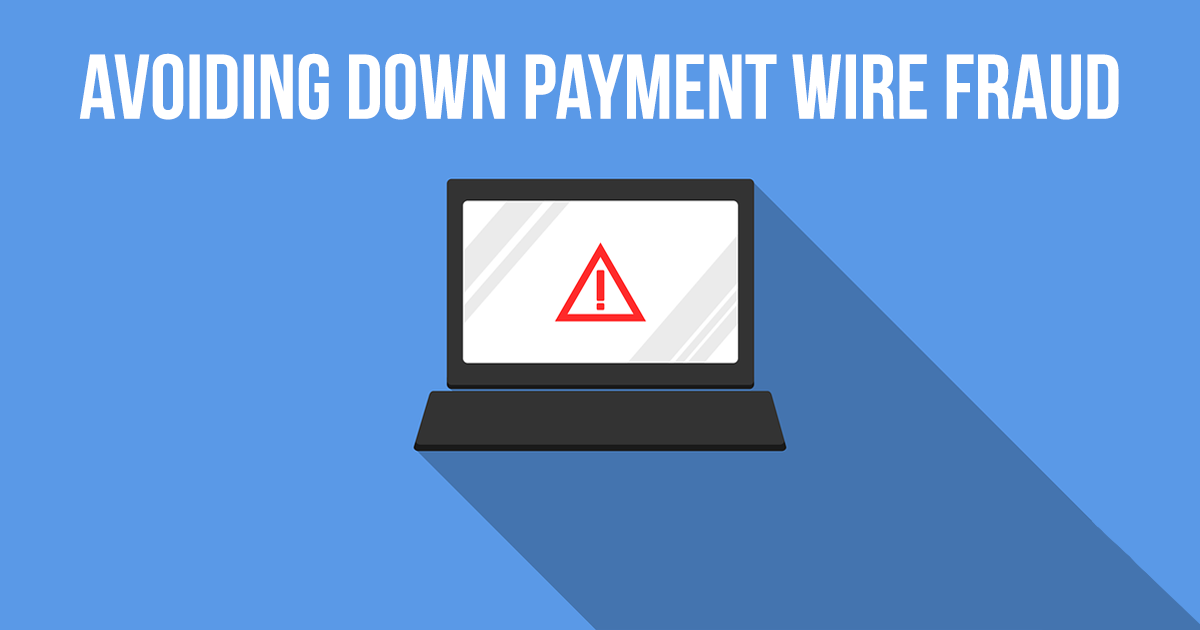How to Know You’re Mortgage Preapproval Worthy
How to Know You’re Mortgage Preapproval Worthy
It’s the biggest hack to homeownership, and probably the most misunderstood: a home loan preapproval. How do you know when you’re financially set to get preapproved? Here’s what lenders look for and what you need to do if you’re not quite there.
What you need for a mortgage preapproval
Unlike a mortgage pre-qualification, a preapproval is more than just a conversation with a lender. You’ll have to submit quite a bit of paperwork, including employment verification and checking, savings and investment records. The lender will pull a credit report on you.
The elements lenders look for in mortgage preapproval are the same industrywide:
A minimum two-year employment history in the same job or field.
A credit score of 620 or higher (in most cases).
A savings track record.
Financial asset records.
Proof of down payment (3% to 20% of the home price, depending on the loan program).
An “all-in” debt-to-income ratio of 43% or less.
Usually, there’s no charge to apply for a mortgage and gain a preapproval, though some lenders will seek reimbursement for the fee to pull your credit.
Job and credit history
The two-year employment history rule has a little leeway; for example, if you are a recent graduate and have proof of future income from your employer. However, transitioning from a W-2 pay stub job to self-employment — without a two-year track record for your new business — is a “definite hard stop in today’s mortgage world,” Don Bleuenstein, national sales director of retail home lending with Flagstar Bank in Troy, Michigan, tells NerdWallet.
He says a credit score of at least 620 is a “fairly hard rule.” But your credit score, which you can often obtain free of charge from a credit card company or bank, may not tell the whole story. While it’s hard to crack the code of all the different credit score models, Bleuenstein says that, in his experience, credit scores used for mortgages are tougher than the consumer credit FICO scores that have become readily available.
This may be because for mortgage credit scores, it is your middle score that counts among the three providers, TransUnion, Equifax and Experian.
Also, you probably can’t count on your spouse’s or partner’s pristine credit score if the home will be in both your names. With two or more borrowers, the worst scoring party’s middle score is used, Bleuenstein says.
.
Assets and down payment
“The ability to budget and save shows financial discipline,” says Staci Titsworth, regional manager for PNC Mortgage in Pittsburgh. “Sometimes clients receive gift money, and that’s fine, or they get a big bonus, and that’s great. We just have to show the underwriter the source of where those monies came from and that the monies were not borrowed.”
However, lenders know we don’t live in an ideal world, she says.
“Let’s face it, nobody’s perfect,” Titsworth says. “Life is not perfect. There are bumps in the road. People lose jobs; people experience job changes. People have unexpected expenses that they have to dip into their savings for. With that, it’s all about the documentation. It’s all about presenting their information to the underwriter that explains the financial ability to repay the mortgage.”
Debt and income
As for debt and income, Bleuenstein says lenders are looking for a debt-to-income ratio of 43% or less. That amount, called a back-end DTI, includes your mortgage payment.
“So if you make $10,000 a month gross [before taxes], $4,300 is what all of your debt on your credit report needs to be under,” he says, including your future house payment, monthly property taxes and homeowners’ insurance as well as your credit card, student loan and/or car payments.
But the numbers have a little wiggle room. Say your DTI is a bit high, perhaps 46%, but you’ve got a good credit score — for example, somewhere around 700 — and you have a 5% down payment in the bank; in that case you probably would get mortgage preapproval, Bleuenstein says.
When to start the mortgage preapproval process
Seeking a preapproval long before you start house hunting will accomplish one important goal: alerting you to any qualifying issues you may not be aware of.
“What’s prudent is: Get preapproved now if you think you’re going to buy in the next year,” so you have time to fix any glitches, Titsworth says. Although preapprovals are usually valid for only 60 to 90 days, a lender will extend them if you update information about your current financial condition.
And once you get mortgage preapproval, you can confidently shop for a home.
The article How to Know You’re Mortgage Preapproval Worthy originally appeared on NerdWallet.
Are Cash Offers Really Better for Home Sellers?
Are Cash Offers Really Better for Home Sellers?
Getting ready to sell your home? No matter the listing price, in today’s strong seller’s market, you may find yourself getting at least one cash offer. In March 2021, 23% of home buyers (including real estate investors) financed their purchases with cash, according to the National Association of Realtors. But are cash offers better for home sellers? That depends on the offer — and the seller.
If you’re looking to sell your house fast or don’t want to deal with contingencies, a cash offer may be ideal for you. But if you might need more time to find a new home or want to be sure you’re maximizing your profits, you could be better off with a mortgaged buyer. It really comes down to the details of the offer, not just where the buyer’s getting their funds.
Who buys a house with cash?
Traditionally, cash buyers tend to be concentrated at either extreme of the housing market. On the low end, you’ll see house flippers and investors buying homes that might not qualify for a mortgage due to condition, price or both. At the higher end, there will always be buyers who don’t need a mortgage. That may be because they have plenty of equity from a home sale, they received a gift or loan from a family member, or simply by virtue of being wealthy.
In the current market, however, more and more average home buyers are paying cash. With housing inventory tight and buyer demand high, paying cash is one tactic some buyers are leveraging in order to win bidding wars.
“Sellers are absolutely in heaven,” says Edgardo Guerrero, a real estate agent with Century 21 Affiliated in Chicago. “For every property, there’s 10, 15 buyers.”
If you get a cash offer from a buyer who’s more or less a regular, it may go more smoothly than if you’re working with a first-time cash buyer. Tasks like getting a purchase contract drawn up and securing title insurance are nothing new for them.
Investors and iBuyers vs. home shoppers
The category of regular cash buyers includes real estate investors, house flippers and iBuyers. iBuyers are companies that pay cash for homes, providing an offer within days, if not hours, and allowing sellers to close in as little as two weeks. Though investors and flippers will seek out listings, you have to take the initiative when selling to an iBuyer.
These buyers generally aren’t planning to live in the home. They’re likely to waive an inspection contingency, because they expect to make repairs or upgrades as part of their investment. Not mandating repairs is also one way iBuyers ensure speedy transactions. Because they’re hoping to profit from buying the house, however, investors may make a lower offer than a buyer who’s looking for a place to live.
Guerrero notes that since tax auctions and sales of distressed properties are on pause, real estate investors who would usually pick up properties at auction “have to come to the open market to get homes.” That creates even more competition among home buyers, raising prices and incentivizing non-investors to consider making a cash offer.
A home buyer who’s buying a house with cash for the first time, whether as a primary residence or a second home, is more likely planning to actually live in the house. This type of buyer may ask for contingencies, like a home inspection. Given that they’re already putting out substantial cash on the house, they’re less likely to want a property that will need significant upgrades or require major fixes. A property that’s safe, solid and move-in ready is a likely expectation for this type of cash buyer.
Why a cash offer may be better than a financed offer
The prospect of a cash offer may have you fantasizing about diving into a pool of money a la Scrooge McDuck, but remember — unless you outright own your home, a good chunk of those funds will be going toward repaying your mortgage. Still, there are plenty of reasons why cash offers appeal to home sellers.
Confidence in the deal going through. With cash, the buyer either has the money or they don’t — if you’ve verified the proof of funds, you know you’ll be able to close. Though data from the National Association of Realtors suggests that most sales close as expected — as of April 2021, only 5% of contracts were terminated — some sellers want a greater level of certainty. The same report shows that a closing being delayed is much more common, affecting 22% of transactions over the previous three months.
Faster process. Even preapproved home buyers have to get an actual mortgage approval, then go through underwriting. That can take 45 to 60 days. Closing a cash transaction can take as little as two weeks.
Fewer contingencies. Cash buyers tend to be less likely to request an appraisal, a home inspection or other contingencies.
Simpler closing. Cash buyers should take it upon themselves to get a title and escrow company, and have an experienced buyer’s agent (and possibly a real estate attorney) to ensure paperwork is complete and correct. Still, without a lender involved, there’s much less to review and sign off on to close the deal.
No appraisal stress. Lenders require an appraisal before approving a mortgage, since the property is what secures the loan. When home values are rising rapidly, appraisals based on comparable home sales don’t always keep pace, leaving a gap between what a buyer would be willing to pay and what a lender will agree to finance. With a cash offer — and no appraisal — the home’s value is whatever the buyer is willing to pay.
Why a financed offer may be better than cash
Given all of that, you might assume cash offers always win. But there’s more to making an offer on a house than funding. A few variables to consider:
What’s better for your timeline. If you’re in a hurry to unload a vacant home or move into a new one, a speedy closing sounds great. But if you’re trying to buy while selling, you might want some extra time. Compare the proposed closing dates and timelines among offers to see which works best for you.
How much money you might be giving up. Two researchers from the Rady School of Management at the University of California San Diego found that from 1980 to 2017, on average, sellers accepted cash offers that were 12% lower than financed offers. Even if you’re interested in a fast closing, weigh those conveniences against the money you might be leaving on the table.
What kind of buyers you’re dealing with. All of the “cash transactions are generally quicker and easier” points above are more likely to hold true if you’re working with an experienced cash buyer. With a first-time cash buyer, you might still have contingencies. If the buyer isn’t working with a real estate agent, that can also make the transaction more complicated. In this scenario, having a listing agent who’s experienced with cash buyers can be a major asset.
Cash buyers can potentially be pushy, assuming that a cash offer is irresistible. “We had an investment property where the buyer came in $5,000 over list price during the ‘coming soon,’ and they said this offer has an expiration of tomorrow evening,” says Mike Ferrante, an agent with Century 21 HomeStar in Cleveland.
He talked with the sellers, who decided to hold off rather than taking the cash. “In this case, now there’s three offers, and one is considerably higher than what they had offered,” Ferrante says.
Should you accept an all-cash offer?
It’s probably pretty clear by now that everyone’s circumstances are different and you’ll need to decide what matters most to you. Whether you end up accepting a cash offer or going with a financed offer, Guerrero and Ferrante agree that in a market where you can expect multiple offers, it makes sense to wait for the right one to come along.
“Some people will say ‘If I list it for 199 and we get an offer for 215 or 220, we’re just gonna take it,’” Guerrero says. He encourages sellers to hold out for “highest and best” offers and to take their time.
A recent listing of his sold for $46,000 over asking price to a cash buyer that came in at “the eleventh hour” when there were already more than a dozen offers on the table. “Had we accepted an offer within 24 hours or even two to three days, we would never have gotten the offers that were coming in,” Guerrero says.
The article Are Cash Offers Really Better for Home Sellers? originally appeared on NerdWallet.
Danelle McMaster
(605) 228-5494
Avoiding Downpayment Wire Fraud
Stop Scammers From Stealing Your Down Payment
A hot new scam targets home buyers: down payment wire fraud.
Hackers send bogus emails, telling buyers where to wire the down payment money. The stolen money disappears. The home buyer ends up with an empty bank account and a broken heart.
Hundreds of millions of dollars have been stolen this way. But you can avoid that fate by making one phone call. It’s that simple.
How the mortgage scam happens
Stacy Hennessey, a real estate agent in Falls Church, Virginia, was targeted with this scam, but she didn’t fall for it. If you follow her example, you won’t get defrauded, either.
Hennessey was buying a house in Maryland. About a week before the scheduled closing, she received an email that appeared to be from her real estate agent. The email told her that the instructions for wiring the down payment had changed, and it gave her an account number to which she should send $30,000.
Hennessey was suspicious for three reasons:
“They were asking me to wire an incorrect down payment amount, lower than it should have been,” she says. “Why would I wire a partial deposit?”
“And why would I be doing it now, several days before closing?” Usually, the down payment money is wired the day before closing.
The sender’s email address was almost, but not quite, her agent’s email address.
How to stop the scammers
Hennessey prevented crooks from stealing her $30,000 by making one call to her real estate agent.
“I said, ‘Hey, did you send me this telling me to wire money?’ And they said, ‘No.’ And I said, ‘Your computer’s been hacked because they know that I’m a buyer, closing soon.’”
Had Hennessey followed the scammer’s instructions, she almost certainly would have lost the money. At the time, she didn’t even know whom she should have called if she had fallen for the scam.
If you get tricked, drop everything and call your bank immediately. After that, contact the FBI and the Federal Trade Commission, in that order.
Rise of down payment fraud
The FBI investigates and tracks this scam, reporting that the number of complaints to title companies exploded 480% in 2016. Down payment wire fraud is one of many scams involving hacked email accounts and fraudulent wire transfers, often occurring within businesses or between businesses.
In 2016, this category of fraud held 16th place in terms of the number of reported complaints (12,005) but held first place in dollar losses (over $360 million). Most of the money ends up in Asia.
Don’t trust, always verify
“Consumers need to be suspicious when wiring large amounts of money to purchase a property,” says Cynthia Blair, a residential real estate closing attorney in Columbia, South Carolina.
Most important, Blair says: “No matter where you get the wiring instructions, you still call and verify.”
If it looks like the email came from your real estate agent, call the agent. If the email appears to have come from a title agency, escrow company or lawyer’s office, call that office to confirm, and then call your agent, just to be sure.
But do it smart: Look up phone numbers yourself. Don’t call a phone number listed in the email. Assume a scammer will answer and say, ‘Yes, those are our wiring instructions,’” Blair says.
How to tell real from fake
If your real estate agent or a settlement company emails you money-wiring instructions, complete with an account number, they’re doing it wrong.
A joint warning to consumers last year from the FTC and the National Association of Realtors said: “If you’re buying a home and get an email with money-wiring instructions, STOP. Email is not a secure way to send financial information, and your real estate professional or title company should know that.”
It’s preferable to convey wiring information in person or by courier.
Blair says her law firm has a signature block at the bottom of every employee’s email that says, in red text, that the firm will never change its wiring instructions.
And when you’re wiring money, ask your bank to confirm the account number and the name on the receiving end, the American Land Title Association recommends in an animated video. Then, immediately after the money is sent, call your agent or the title company to verify the money was received.
If you fall for wire fraud …
You might be able to claw back your money if you act minutes or even hours after falling prey to this scam. Call your bank and emphasize that you are a victim of fraud and tell your bank to contact the recipient bank to inform it that a fraudulent wire was sent and that it should reject the wire.
Report the crime
Here’s how to report the crime:
Report the scam to your regional FBI office. Say that you’re a home buyer and that you’re a target of “email account compromise” in which a hacker instructed you to wire down payment money to a fraudulent account. According to the FBI, the bureau might be able to help return or freeze the money.
File an online complaint with the FBI’s Internet Crime Complaint Center.
File a complaint with the FTC by selecting Scams and Rip-offs, then Impostor Scams.
Don’t hesitate and don’t feel ashamed. Thousands of people fall victim to this crime. By being vigilant and by making a phone call or two, you can ensure that your down payment ends up in the correct bank account.
The article Stop Scammers From Stealing Your Down Payment originally appeared on NerdWallet.
Danelle McMaster
Phone:+1(605) 228-5494



